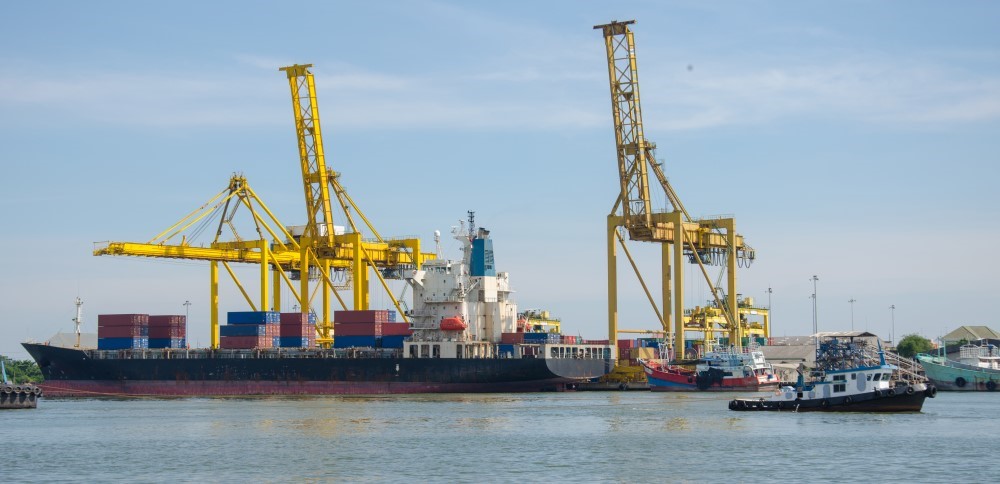One good reason for leaving the European Union is the opportunity to experiment and discover policy ideas which can deliver better outcomes for all of Britain than those cast fully-formed in Brussels. So the news that the Government is thinking of allowing up to 10 new ‘free ports’ is welcome: it is a start.
But only a start, and as things stand, the Government’s minimalist free-market plans are unlikely to make the best of the opportunity. For the policy appears to be geared principally towards establishing export-processing zones touting for European business. It’s a low-end ambition, and likely to yield low-end results.
There are two glaring shortcomings.
First, and crucially, there’s no mention of how, or if, local democratic consent is to be won. If implementing free ports is to involve significant alterations to tax, planning, labour and environmental regimes, then the people of that area must give their consent. This is a basic democratic necessity. Without local democratic consent, every regulatory ‘relaxation’ will be seen as Westminster downgrading protections for people and communities which are already disadvantaged. The SDP is in favour of Special Economic Zones with the ability to try different policy-mixes, but not at the cost of forgetting the ‘Democratic’ centre of our ambitions.
But there is an equally important economic principle at stake: these SEZs need not only local democratic ‘buy-in’ (perhaps involving community shareholding), but also local control of policy development.
This cannot be done from Westminster. The people on the spot, struggling to make the project work, will know better and quicker what needs to be done. Controllers in Westminster probably won’t. We already know the damage done to England outside the Southeast by the Treasury’s Green Book criteria for public investment. It is unthinkable that the same people will suddenly develop the vision and courage required to driver a successful Special Economic Zone project. Even the Communist control-freaks in Beijing recognized that if Shenzhen SEZ was going to be successful, it had to be allowed its own administrative control, its own room to develop the policies it needed to grow. Will the Treasury prove less flexible than Beijing’s cadres? Quite possibly.
This morphs into the second shortcoming: if these free ports are to be nothing more than export-processing plants, they are likely to generate only low-margin, low-productivity companies and jobs. Any potential economic and technological gains from industrial clustering will be lost: lost because not even attempted. Worse, if implemented with minimal imagination, these free ports will simply siphon industrial activity away from their immediate hinterlands.
The alternative would be to designate these ‘free ports’ as SEZs dedicated to particular sectors or technologies. For example, I would love to see the Humber River Delta allowed enough regulatory flexibility to invent itself as a Circular Economy SEZ. A Circular Economy is one designed, top to bottom, to generate maximum resource efficiency, recycling and minimum waste.
Circular Economy ideas are ambitious, but also among the best opportunity we have to start to tackle environmental issues whilst at the same time growing the economy. What’s holding back Circular Economy ideas? The core problem is that by definition the Circular Economy is completely integrated in an almost holistic way. Individual firms cannot build a Circular Economy on their own: clustered in a dedicated SEZ, they might. Imagine if a British Circular Economy SEZ discovered how to make it all work: it would constitute a new Industrial Revolution.
So raise one cheer for the Free Port proposals, but reserve the other two for democratic buy-in, and for industrial vision.



A Circular Economy Special Economic Zone is all well and good, but a bit of a mouthful – such a concept will take some explaining to the ordinary voter.
I know, and I agree. The fundamental problem of a ‘Circular Economy’ is that no-one, not even Ellen Macarthur, can fully describe it. And that’s because if it is to be a reality, rather than just companies making an effort, it has to involve considerable vertical and horizontal links in all phases of the design, production and distibution process. My belief is that this will only, and possible can only, be discovered in something like a specially purposed SEZ.
I have wrestled, probably unsuccessfully, to make the case here, and would absolutely welcome others making the same attempt. I wish them more success than I evidently had.
The flip side of that, of course, is that the first country/area that can manage it, will have initiated the next industrial revolution.
Interesting piece. Surely, whereas the lofty goal may be 100% circulatory, achieving, say, 60% would be a great improvement on the status quo and justification for this approach to be implemented.
Again, I agree. If a Circular Economy SEZ could get to 60%, then I’m pretty sure that you’d get a sort of Moore’s Law process going that could keep raising the ratio year by year. The concentration/clustering effect ought to be very powerful.
I want to add something else. The current environmental movement has failed: despite all the billions spent, CO2 concentrations are still growing, and still growing at an accelerating pace. There is literally no chance of current approaches succeeding: it’s Environment WW1 out there, with the Green Generals always and only seeking one more big push, no matter what hardship that involves. We’ve got to be able to offer something better, and discovering how a Circular Economy can actually work would be more than a start – it would be the next industrial revolution.